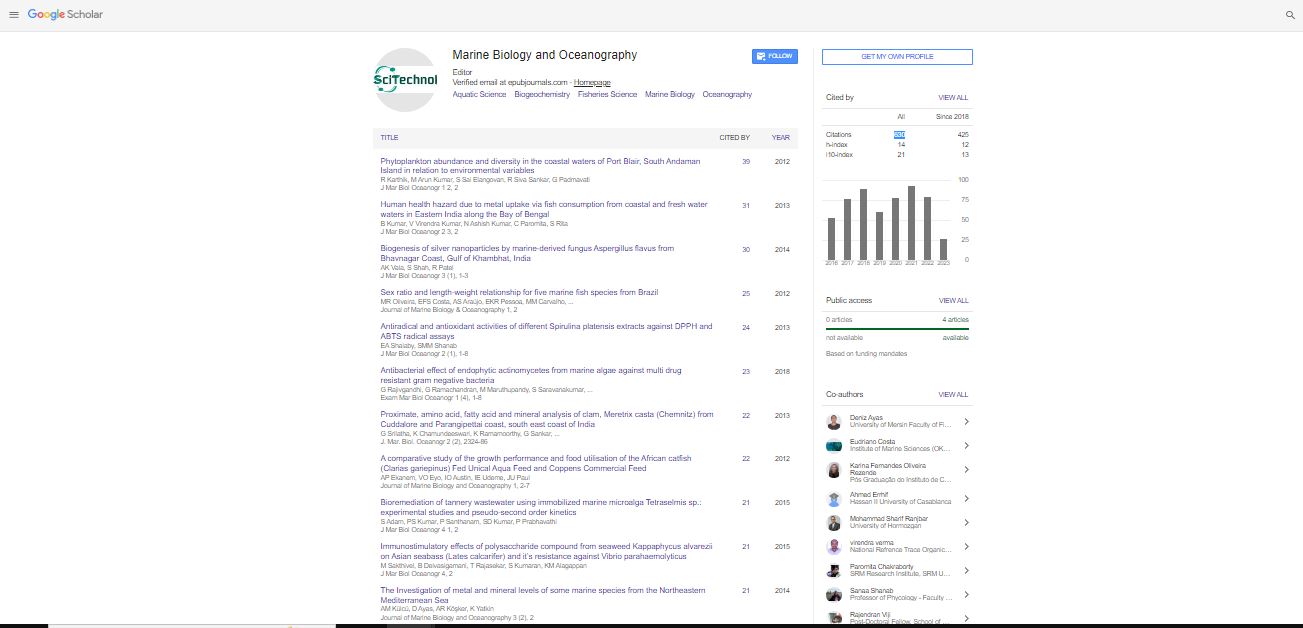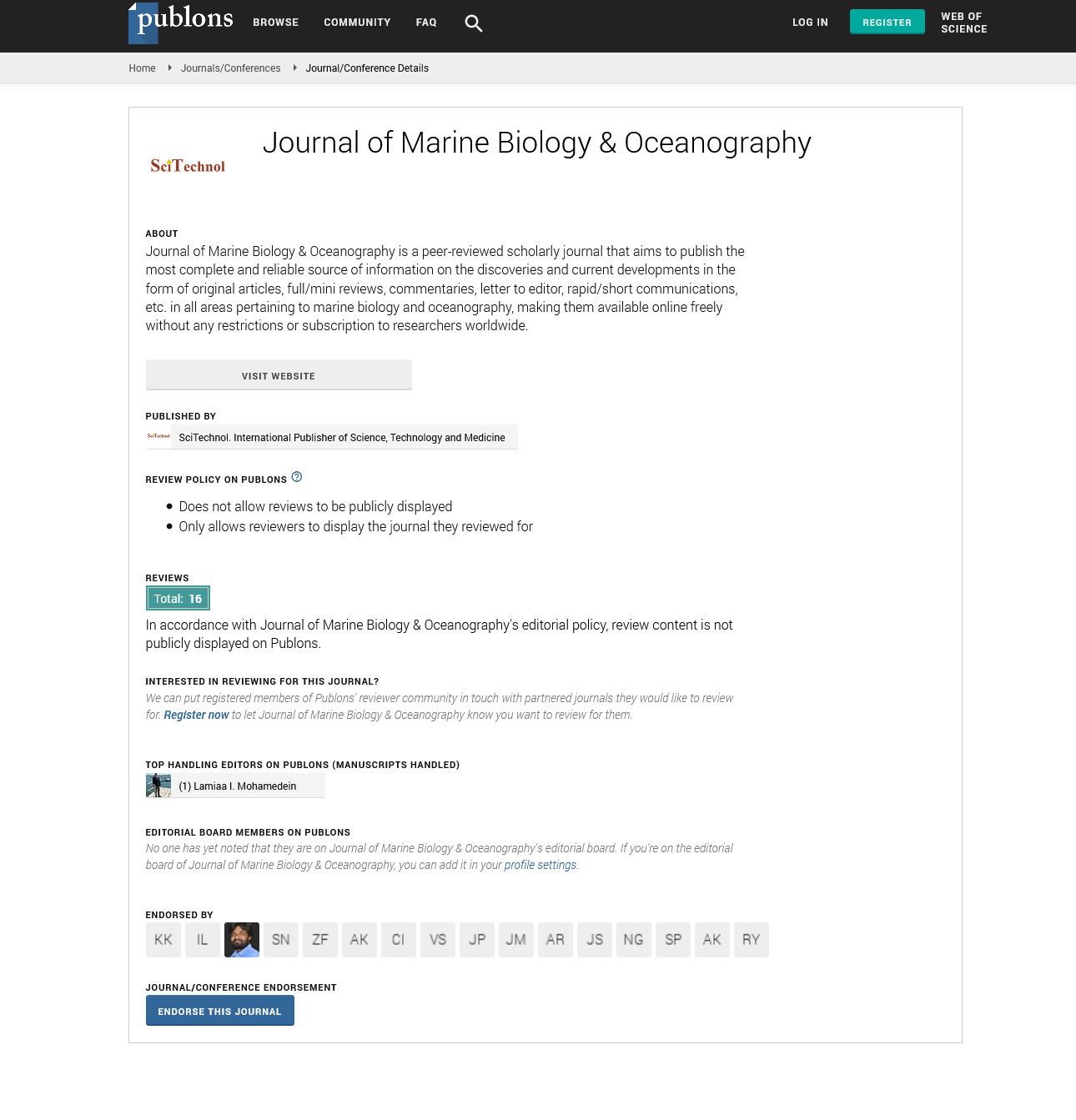Research Article, J Mar Biol Oceanogr Vol: 5 Issue: 2
Effect of Differently Regioselective Chitosan Sulfates on Serum Lipids in Alloxan induced Diabetic Rats
| Xing Ronge1,2, Liu Song1,2, Yu Huahua1,2, Qin Yukun1,2, Li Kecheng1,2 and Li Pengcheng1,2* | |
| 1Institute of Oceanology, Chinese Academy of Sciences, Qingdao 266071, China | |
| 2Key Laboratory of Experimental Marine Biology, Institute of Oceanology, Chinese Academy of Sciences, Qingdao 266071, China | |
| Corresponding author : Li Pengcheng Institute of Oceanology, Chinese Academy of Sciences, Qingdao 266071, China Tel: +86 532 82898707 E-mail: pcli@qdio.ac.cn |
|
| Received: February 22, 2016 Accepted: June 01, 2016 Published: June 06, 2016 | |
| Citation: Ronge X, Song L, Huahua Y, Yukun Q, Kecheng L, et al. (2016) Effect of Differently Regioselective Chitosan Sulfates on Serum Lipids in Alloxan induced Diabetic Rats. J Mar Biol Oceanogr 5:2. doi:10.4172/2324-8661.1000154 |
Abstract
Effect of Differently Regioselective Chitosan Sulfates on Serum Lipids in Alloxan induced Diabetic Rats
Objective: Diabetes mellitus is the most common endocrine disorder, and sometimes accompanied by long-term complications, which mainly was resulted in insufficient metabolic control. In this paper, we investigated and compared the hypolipidemic activity of differently regioselective chitosan sulfates in alloxan-induced diabetic rats.
Methods: Compared with the normal control rats, no noticeable changes were found in serum lipid levels in the diabetes rats. Except 3-O-sulfochitosan (TCTS), other chitosan sulfates exhibit mild lipid regulating activities at different doses and time.
Results: First, TCTS significantly elevated the serum cholesterol level, however, TCTS also notably increased HDL-C level. HDL-C is a kind of the important criteria of antiatherogenic agents. Many studies have showed that the higher level of HDL-C lead to the lower incidence of cardiovascular diseases. Second, treatment with TCTS the plasma insulin levels were obviously increased in the diabetic rats. Insulin deficiency in diabetes mellitus has been demonstrated to bring about various disorders in metabolic and regulatory processes, which in turn causes to accumulation of lipids.
Conclusions: Therefore, in terms of the effect of TCTS for HDL-C and serum insulin level, TCTS might be has a lipid lowering effect on the alloxan-induced diabetic rats.
 Spanish
Spanish  Chinese
Chinese  Russian
Russian  German
German  French
French  Japanese
Japanese  Portuguese
Portuguese  Hindi
Hindi 
